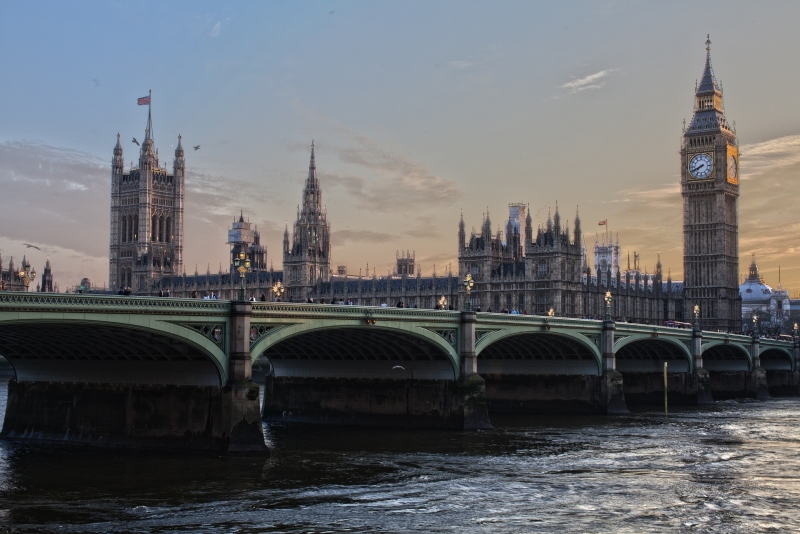
Business bodies warn Chancellor of damage caused by Treasury insolvency cash grab
13 September 2019
Leading business groups and insolvency experts have written to the Chancellor to warn that plans to prioritise repayments to HMRC over repayments to other creditors in insolvencies will have serious consequences for the UK economy.
Under legislation included in the draft Finance Bill, the Government is planning that, from 6 April 2020, certain tax debts owed by an insolvent company - including VAT, PAYE, and employee NICs - will be repaid to HMRC in priority to debts owed to floating charge holders and unsecured creditors, including a company's pension scheme and its suppliers.
Currently, HMRC is repaid alongside other unsecured creditors. The change was announced, with no prior consultation, at the 2018 Budget.
The letter has been signed by representatives from:
- R3, the insolvency and restructuring trade association;
- the Alternative Credit Council;
- the Association of Chartered Certified Accountants;
- the British Private Equity and Venture Capital Association;
- the British Property Federation;
- the Chartered Institute of Credit Management;
- the City of London Law Society;
- the Institute of Chartered Accountants in England and Wales;
- the Institute of Chartered Accountants of Scotland;
- the Insolvency Practitioners Association; and
- Professor Peter Walton of the University of Wolverhampton.
The signatories say that the proposals will make it harder to rescue businesses, will limit access to finance throughout the economy, will increase the impact of insolvencies on other businesses, and may even undermine government tax receipts.
"While we understand that the Government wishes to increase the value of taxes repaid in the event of insolvency, there is a serious risk that the wider costs of the Government's approach will outweigh any expected benefit," they wrote.
"This proposed policy would reverse successive governments' attempts to encourage a culture of business rescue in the UK, and would undermine the Government's recent work to strengthen the UK's insolvency and restructuring framework.
"The proposal may have a significant and negative impact on access to finance in the UK, and will increase the impact of corporate insolvencies on pension schemes, trade creditors, consumers, and the wider business community."
Government projections claim the move, alongside other changes, could raise £195m a year, at most, in tax income, but the business groups are warning this sum could be less than the amount that will be lost in taxes from businesses which can no longer be rescued, and as a result of restricted access to finance throughout the economy.
Duncan Swift, president of R3, said: "The Government has not properly considered the wider impact its proposals will have, and the costs to the economy of proceeding."
Floating charge funding, where money is lent against a changing asset like stock (rather than a fixed asset like a building), is one area that is expected to be hardest hit by the proposals.
Duncan Swift continued: "Floating charge lenders will be less likely to see their money back if a business becomes insolvent under these proposals because a huge chunk of any insolvency repayments will now go to HMRC.
"This will almost certainly make floating charge lenders less willing to lend. This means less money available in risky situations, particularly rescues, and less money available for the healthy businesses which depend on floating charge finance: retailers, and small and growing businesses among others.
"Tighter access to finance means lower business growth, fewer tools for businesses to use to rescue themselves, and lower government tax receipts. Simply put: these proposals could do more harm than good."
The business groups want to see the Government's proposals scrapped - or at least amended to counteract the potential consequences.
Their letter continued: "At the very least, the Government must take steps to limit the worst side effects of its policy, including capping the age of tax debts eligible for a preferential claim, or allowing existing floating charges to retain their precedence over HMRC's new claim.
"The Government should also consider alternatives to its proposed policy: proactive, consistent and commercially-minded engagement from HMRC in insolvency and restructuring situations would improve the repayment of tax debts and would benefit other creditors, too."
Duncan Swift said: "We hope by writing to the Chancellor he will take a step back, re-evaluate and come to the conclusion there are better alternatives than a quick insolvency cash-grab."
Philip King, Chief Executive of the Chartered Institute of Credit Management, said: "The Treasury's desire to boost its own revenue is at risk of causing an unintentional domino effect which will hit businesses and the economy. What's proposed will have serious consequences for trade creditors who are at risk of suffering more bad debts, late payment and insolvencies in their supply chains."
Bob Pinder, Director, ICAEW, said: "We believe the proposed policy will have unwanted and unfortunate consequences. Our recent ICAEW Business Confidence MonitorTM shows that business confidence is negative and that it needs to be boosted, especially now due to the turbulent political and economic situation. However, any reduction in the ability of finance providers to lend will simply undermine business confidence further, which is why we are warning against the proposed changes."
Peter Walton, Professor of Insolvency Law at Wolverhampton Law School, said: "The effect of the reintroduction of 'Crown Preference' appears to have been seriously miscalculated by Government. Research carried out during the time when HMRC was last paid ahead of unsecured creditors showed the policy made it harder to rescue companies. There's a real risk this will happen again if the policy is reintroduced."
- The letter is available in full here (PDF).

- R3 Blog Member news, commentary and analysis from R3
- Policy & Research Insights into the economy and the insolvency and restructuring, and recommendations for reform
- Consultation Responses Our responses to Government consultations on insolvency and restructuring issues
R3 members can provide advice on a range of business and personal finance issues. To find an R3 member who can help you, click below.

 Stuart McBride
Stuart McBride Amelia Franklin
Amelia Franklin Lyle Horne
Lyle Horne
